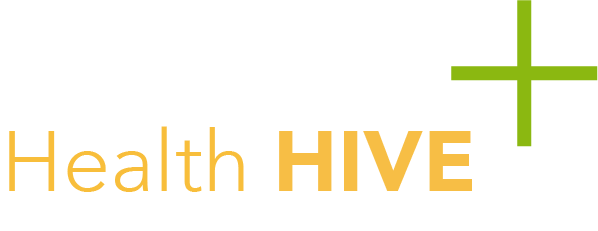The Alarming Truth About Too Much Protein Intake

Introduction
Protein is often praised as the golden nutrient—essential for muscle growth, metabolism, and repair. With the explosion of keto, paleo, and high-protein diets, it’s no wonder many people aim to stack their plates with protein-rich foods and supplements.
More isn’t always better.
Recent studies and health experts are sounding the alarm on the effects of too much protein intake, highlighting risks such as kidney strain, accelerated aging, and even cancer. So, how much protein is too much—and what are the dangers?
Let’s dive into the facts and science-backed insights to answer these vital questions.
Understanding Your Protein Needs
The Recommended Dietary Allowance (RDA) for protein is:
- 46 grams/day for women
- 56 grams/day for men
This guideline is based on sedentary adults and can increase with physical activity, age, pregnancy, or chronic illnesses. However, many people today consume double or even triple these amounts—mainly from animal products and supplements.
Short-Term Benefits of Protein
Let’s be fair: Protein is vital to a healthy body. Here’s what it helps with:
- Muscle repair and growth
- Satiety and appetite control
- Weight management
- Enzyme and hormone production
The key issue is not with protein itself, but with consistently exceeding the body’s needs.
When Protein Turns Against You
Over time, excess protein can:
- Overburden vital organs like kidneys and liver
- Cause nutrient imbalances
- Increase long-term disease risks
According to the Mayo Clinic Health System, excessive protein intake can lead to side effects such as dehydration, kidney damage, and calcium loss—especially in people predisposed to kidney disease.
Kidney Damage Concerns
Your kidneys filter the waste created when the body metabolizes protein, particularly urea, a byproduct of nitrogen.
When protein intake skyrockets:
- Urea levels increase, forcing the kidneys to work harder
- Individuals with existing kidney issues may experience accelerated decline
- There’s a risk of chronic dehydration due to increased urination
If you’re healthy, your kidneys might cope. But if you’re unaware of underlying conditions, a high-protein diet can silently cause harm.
Liver Strain and Ammonia Build-Up
Another side effect is liver overload.
When protein breaks down, ammonia is produced, which the liver converts into urea. Too much ammonia:
- Overwhelms liver detox systems
- May lead to fatigue, nausea, or confusion
- In rare cases, can trigger hepatic encephalopathy in vulnerable individuals
Accelerated Aging and IGF-1 Link
One of the most startling revelations comes from recent longevity studies.
As noted in the Real Simple article and backed by experts, high-protein diets—especially from animal sources—stimulate Insulin-like Growth Factor 1 (IGF-1).
This hormone promotes growth but also:
- Speeds up cellular aging
- Increases the risk of cancer
- Is linked to a shorter lifespan in adults under 65
According to a study referenced in Parade Health, high midlife protein intake correlates with higher mortality and disease rates.
Heart Health Risks
Animal-based proteins, such as red meats and cheeses, are often high in saturated fats.
Excess intake contributes to:
- Elevated LDL (bad) cholesterol
- Higher blood pressure
- Greater risk of heart disease and stroke
Processed meats also contain sodium and preservatives—both harmful in the long run.
Digestive Complications
Many high-protein diets reduce carbohydrates and fiber, leading to:
- Constipation
- Bloating
- Gut microbiome disruption
Fiber from fruits, veggies, and grains is vital for digestion and colon health—and excess protein often pushes these foods off the plate.
Bone Health and Calcium Depletion
Protein metabolism produces acidic byproducts. To neutralize these, the body may leach calcium from bones, increasing:
- Calcium excretion
- Bone weakening
- Risk of osteoporosis
This risk is heightened in women and older adults not getting enough calcium in their diet.
Cancer Risks and Red Meat
Multiple studies suggest a link between high consumption of animal protein—especially red and processed meats—and increased risks for:
- Colorectal cancer
- Breast cancer
- Prostate cancer
This is due to:
- IGF-1 stimulation
- Heme iron
- Carcinogenic compounds from processed or charred meats
Nutritional Imbalance
A diet heavily focused on protein can cause:
- Deficiencies in vitamins C, A, E, and K
- Lack of antioxidants and phytonutrients
- Imbalanced electrolytes
Skipping whole foods in favor of protein shakes or meat-centric meals leaves the body starved of essential nutrients.
Warning Signs of Overconsumption
Common symptoms include:
- Bad breath (due to ketosis)
- Frequent urination
- Dehydration
- Digestive issues
- Irritability and fatigue
These can signal that your protein intake is exceeding your body’s capacity.
Groups at Higher Risk
High-protein diets can be especially dangerous for:
- Athletes or bodybuilders pushing extreme consumption
- Older adults with declining organ function
- People with diabetes or kidney disease
These groups need personalized nutrition plans guided by healthcare professionals.
Healthy vs. Harmful Protein Sources
Not all protein is created equal. Compare:
| Healthy Sources | Riskier Sources |
| Lentils, beans | Processed meats |
| Tofu, tempeh | Bacon, sausage |
| Eggs (in moderation) | High-fat red meats |
| Fish, poultry | Protein supplements (if overused) |
Opt for plant-based and lean animal proteins for better health outcomes.
Practical Tips for Balanced Protein Intake
- Stick to your RDA unless advised otherwise
- Include fiber-rich carbs with every meal
- Hydrate more to aid kidney function
- Diversify protein sources
- Consult a dietitian if you’re on a special diet
Conclusion
Protein is powerful—but it isn’t a miracle nutrient. Overdoing it can harm your body in subtle yet serious ways, from kidney damage to faster aging and increased cancer risk.
The takeaway? Balance, variety, and moderation are the real superpowers of a healthy diet.


































































